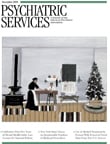Handle With Care
Jodi Picoult's Handle With Care is a harrowing novel, its action moving ever more swiftly and relentlessly toward what the reader early on intuits will be disaster. It is also beautifully written, riveting in its creation of an unresolvable conflict not just within the main character, but between her and everyone else she loves, including her younger daughter, Willow, a child born with a spontaneous mutation leading to type III osteogenesis imperfecta (OI). In a bid to win the money that would make Willow's life easier, Charlotte files a "wrongful birth" lawsuit against her obstetrician—who is also her best friend. The lawsuit destroys the friendship and imperils every other meaningful relationship that Charlotte has.
Picoult's books routinely achieve the New York Times' bestseller list, and this one demonstrates why: she is a master of metaphor. Picoult intermittently leavens the narrative with pastry-chef Charlotte's recipes and reflections on the techniques of baking—tempering, folding, "blind-baking," the use of interfering agents—linking each technique or pastry product to the action of the novel. To read Handle With Care is to learn a lot about OI, something about pastry making, and much about ordinary human mistake and heartbreak. Most maddening and saddening for the reader is Charlotte's blind insistence that five-and-a-half-year-old Willow will understand that Charlotte is lying when she implies that yes, she would have aborted her daughter had her obstetrician recognized the importance of the startlingly clear ultrasound of Willow's calvarium at 18 weeks.
Picoult's plot moves forward with dizzying speed under the impetus of Charlotte's stubbornness, and as the trial begins and rushes toward settlement, things spin more and more out of control—Willow attempts suicide, the obstetrician and Charlotte's husband share a furtive kiss, the obstetrician's orthodontist husband helps diagnose and bring to Charlotte's attention the cutting and bulimia of her older daughter, Amanda. And Amanda, it turns out, is a masterful ice-skater, but her own life has been so overshadowed by Willow's needs that the reader is surprised to learn this fact. Nevertheless, it fits: just as children with OI are always at risk of another bone break, the ice-skating imagery drives home the message throughout Picoult's novel of skating on thin ice.
The ending of the novel was a complete and utter surprise to me. Other than to say it also fits, I won't say more but will simply recommend Handle With Care as something to read with care, when not feeling fragile.
The reviewer reports no competing interests.



